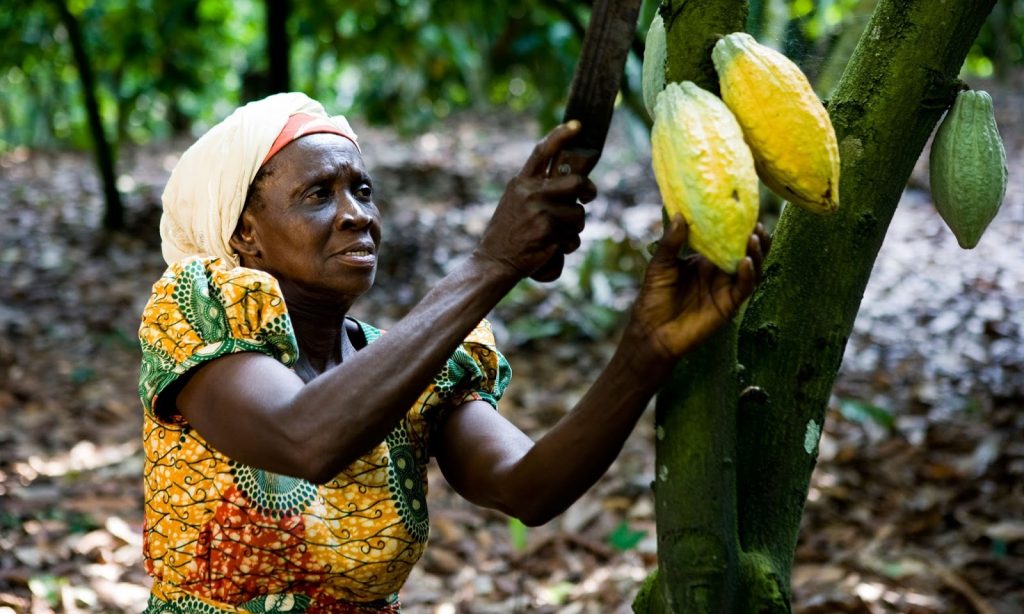A new project by the African Development Bank (www.AfDB.org) and the International Agroforestry Agency [ICRAF (www.WorldAgroForestry.org)] would bring relief to two Ivorian smallholder cocoa farmers’ communities in Soubre and Vavoua currently grappling with declining yields caused by climate change and worsened by the COVID-19 pandemic.
Without help, some 800,000 Ivorian smallholder farmers, who produce the largest share of the world’s cocoa supply, could suffer heavy production losses due to production and supply chain disruption.
“Our experience has proven that agroforestry practices, knowledge, and skills transfer enhance the sustainability of cocoa plantations and improve the resilience of smallholder farmers’ communities, particularly of women and youth,” said Christophe Kouame, ICRAF’s Director for Central and West Africa.
Côte d’Ivoire is the world’s largest cocoa producer, followed by Ghana. Together, the two West African neighbours account for more than two-thirds of the global supply. Cocoa plantations, which are the backbone of the world’s chocolate supply, are highly vulnerable to climate hazards, such as heatwaves, droughts, seasonal shifts, and erratic rainfall.
Under the Bank’s new initiative, the two smallholder farmer communities will receive climate-resilient and sustainable agroforestry assistance in 2021. The scheme will be implemented by the ICRAF and its partners – Mars Confectionaries, and the Rainforest Alliance.
“Agroforestry and climate-smart landscapes can generate nature-based solutions that reduce climate risks, as well as losses and damages caused by climate change,” Kouame said.
The Adaptation Benefits Mechanism (ABM) – a first-of-a-kind results-based non-market mechanism for financing adaptation, piloted by the African Development Bank in the period 2019-2023, will be used to mobilize new finance to replicate the successful practices in other Ivorian cocoa farmer communities and in at least three other cocoa-growing countries in the region.
“The current levels of climate finance for Africa are only a fraction of what is needed to ensure a smooth transition to a sustainable, low carbon and resilient continent,” said Anthony Nyong, Director for Climate Change and Green Growth at the African Development Bank. “The African Development Bank aims to mobilize at least $50 million by 2023 to pilot the ABM and operationalize it for global use.”
Under the ABM, adaptation project developers can sign off-take agreements with a variety of public, private and non-profit actors for payments upon delivery of certified adaptation benefits and use those agreements as collateral for achieving equity and raising finance. This additional revenue stream will make adaptation projects that will not be implemented otherwise feasible.
Unlike mitigation projects, the vast majority of adaptation initiatives struggle to raise finance because they deliver public good and rarely generate cash flows. Without an incentive to address this issue, such as through the ABM, many vulnerable communities will become even more exposed to the devastating impacts of climate change.
“The ABM promises to be a game-changer in better engaging the private sector, non-profit organizations and local governments to address the huge adaptation deficit,” Nyong said.
More information about the ABM is available here (https://bit.ly/3t4phf4).






